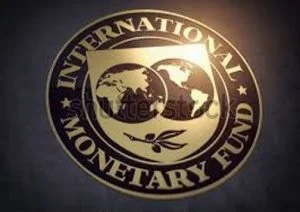The International Monetary Fund (IMF) says the economic outlook for St. Kitts-Nevis is “positive” but warns the twin island federation that it is subject to downside risks in the short term, primarily stemming from global headwinds impacting key tourism source markets and commodity price volatility.
The IMF said economic growth is projected at 4.5 percent in 2023, supported by a strong recovery in tourism and other service sectors. It said the economy was severely hit by the coronavirus (COVID-19) pandemic with gross domestic product (GDP) contracting 14.5 percent in 2020 and 4.3 percent in 2021.
An IMF mission, led by Alexandre Chailloux, has ended a two week visit to Basseterre for the 2023 Article IV consultation discussions on economic developments and macroeconomic policies.
He said St. Kitts-Nevis is recovering from the COVID-19 pandemic and cost of living crisis. The large fiscal buffers accumulated over a decade of prudent fiscal policy have supported the authorities’ forceful policy response to protect the livelihood of the population.
He said preserving the country’s legacy of fiscal prudence, in a context of concerns over the sustainability of Citizenship-by-investment Program (CBI) resources, and of a pressing need for investment in climate change adaptation, will require prioritizing policies.
“This includes tightening the fiscal stance through phasing out crisis-related measures, rationalizing and controlling current spending, streamlining social transfers, and a holistic overhaul of the taxation framework.
“Fiscal space could support investment in climate change adaptation, accelerate economic diversification, and restore waning competitiveness. Concentration of risks in the banking sector calls for a business model change, including de-risking of the investment portfolio, addressing legacy asset quality issues, and safeguarding government deposits, while supporting credit growth and financial stability,” Chailloux said.
He said the tourism recovery here has been lagging the Eastern Caribbean Currency Union (ECCU) and other Caribbean countries because of stricter and longer lasting COVID restrictions. The IMF official said the growth catch-up in 2022 was moderated by global headwinds.
“GDP is estimated to have grown by nine percent in 2022. The authorities’ proactive policy response helped dampen inflation pressure with average inflation rising to only 2.7 percent. The previous administration made a substantial repurchase of land – 7.6 percent of GDP – from the land-to-debt swap arrangement, hereby reducing its deposits and contingent liability, which now remains at 12 percent of GDP”.
Chailloux said these measures came at a cost to public finances: despite receiving record high CBI revenues, the government incurred the largest primary deficit in two decades.
He acknowledged that the outlook is positive, but risks are somewhat tilted to the downside.
CMC/















